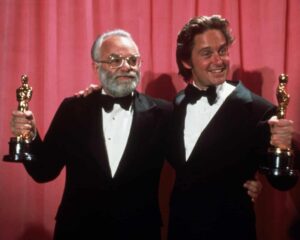
UPDATE: Today marks the fifteenth anniversary of the death of renowned conductor Sir Charles Mackerras, a pivotal figure in the music world whose influence continues to resonate globally. Mackerras passed away on July 14, 2010, at the age of 84, leaving behind a legacy that spans continents and generations.
Mackerras was deeply involved in music until his final days, with plans to conduct at two Prom concerts in London and an eagerly awaited interpretation of Mozart’s Idomeneo at the Edinburgh Festival. His profound impact is celebrated not just in his native Australia but also in the Czech Republic, where he championed the works of composer Leoš Janáček.
As we reflect on his enduring legacy, Mackerras is remembered for his vast repertoire, which included all symphonies by Mozart, Beethoven, and Brahms, and for his pioneering recordings from the era of 78 rpm records to modern DVDs. His scholarly work on musical editions not only enhanced performances but also influenced countless musicians and conductors around the world.
The celebrations of Mackerras’ life are timely, coinciding with the 100th anniversary of his birth, highlighting his contributions to music that remain vital today. His recordings, spanning back to 1952, are still readily available on streaming platforms, ensuring that his artistry continues to inspire new generations.
Mackerras was integral to the Australian music scene, having served as the principal oboe for the Sydney Symphony Orchestra and later as its first Australian chief conductor. His legacy is particularly poignant as it includes his mentorship of emerging talent, such as Simon Hewett, who recalls the vitality and passion Mackerras brought to his final performances, notably during Janáček’s opera The Cunning Little Vixen at Covent Garden in March 2010.
In a world where music continues to evolve, Mackerras’s commitment to historical accuracy in performance remains a touchstone for musicians worldwide. His innovative approach to what is now known as historically-informed practice has transformed how classical music is interpreted today.
As we commemorate his contributions, the music community anticipates what revelations his second century may hold. Mackerras’s work serves as a bridge connecting the past with the present, ensuring his influence will endure well into the future.
In a statement reflecting on Mackerras’s impact, musicologist Malcolm Gillies noted, “Sir Charles Mackerras lives on through the skills he so willingly shared with many others.” The celebrations of his life and work not only honor his memory but also revitalize interest in the rich tapestry of classical music he so passionately championed.
Stay tuned for more updates on the ongoing tributes to Sir Charles Mackerras and the impact of his work in today’s music scene.







